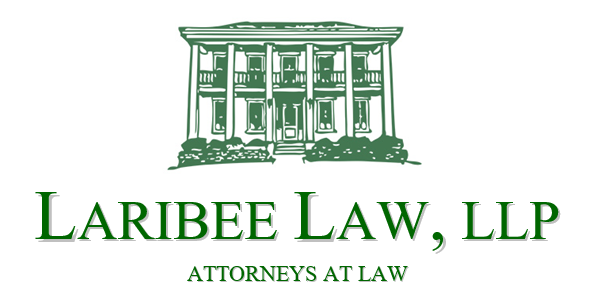Gifted Property vs. Inherited Property – Tax Issues to Consider
Michael L. Laribee, Esq.

Edward owned forty acres of land near a large lake in Northeast Ohio. He bought the land nearly thirty years ago from a farmer who split up several hundreds of acres of farmland. Edward paid the farmer $20,000. Edward did not have immediate plans for the land, but he hoped its value would increase in the future.
Edward’s wish finally came true when a large real estate developer created a popular resort community around the lake complete with upscale retail stores, condominiums, and restaurants. Edward’s lot, located just outside the resort, was now worth approximately $300,000. Unfortunately, Edward had fallen ill and he did not have the energy to develop his land. He gifted the land to his nephew, Jerome. Edward passed away a few months later.
When Jerome went to sell the land to another developer for $300,000, his accountant explained that he would have to pay considerable capital gains tax on the sale since he received the property as a gift.
If Edward had considered the issues of capital gain, Jerome could have avoided the tax altogether.
In simple terms, “basis” is the amount an owner has invested in an asset. Generally, the basis is what the owner paid for it. Edward’s basis in the land was $20,000, the amount Edward paid thirty years ago. Capital gain or loss is the difference between the basis and the amount a seller receives upon sale of an asset. In other words, if you sell an asset that is worth more than you paid for it, you will have to pay taxes on the gain. The capital gain on Jerome’s sale is $280,000 which is the difference between the sale price ($300,000) and amount Edward paid for the lot ($20,000).
But Jerome could have avoided the capital gains tax if he received the land upon Edward’s death rather than through a gift before Edward died. When someone receives the gift of an asset before death, the person who receives the asset keeps the same basis in the asset held by the gifting party. This is called a “carryover basis.” However, when a beneficiary receives an asset from a decedent upon death, the beneficiary's basis in the asset is "stepped up" to the fair market value of the asset on the date of the death. The IRS permits a stepped-up basis in property acquired by bequest, devise, or inheritance, or from the decedent’s estate. If Jerome had inherited the land, his basis would have been $300,000. The sale to the developer for $300,000 would have produced no capital gain.
Sometimes, gifted property can result in a stepped-down basis if the value of the asset decreased prior to the date of gifting. In this case, it is best for the owner to sell the property before death and take full tax advantage of the loss himself. If the property is transferred upon the owner’s death, the beneficiaries will take the property at the stepped-down basis and they lose the benefit of the capital loss.
What is at stake? Capital gains taxes vary depending on whether they are considered short-term gains (assets held less than one year) or long-term gains (assets held for more than one year). Short-term gains are taxed as ordinary income based on the taxpayer’s tax bracket. Long term gains are taxed at a maximum 20% depending on the income level of the taxpayer.
Mistakes are often made when property is gifted to a family member prior to death. Plus, there are exceptions to the general principles discussed in this article. If you have questions regarding gifting your assets, the attorneys at Laribee Law, LLP can assist you.
Michael Laribee is a partner in the Medina law firm Laribee Law, LLP. This article is intended to provide general information about the estate planning and asset protection law. It is not intended to give legal advice. Readers are urged to seek advice from an attorney regarding their specific issues and rights.
Need a lawyer or have legal questions? Contact Attorneys in Medina from Laribee Law, LLP.
Related law articles


